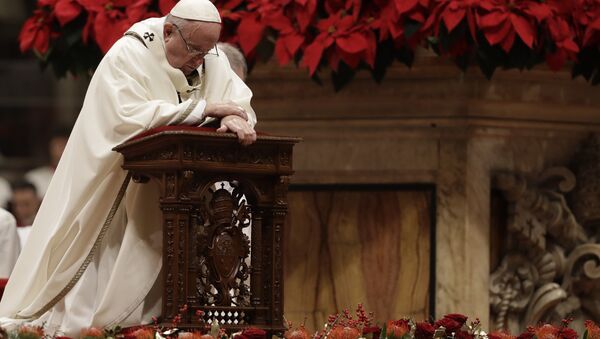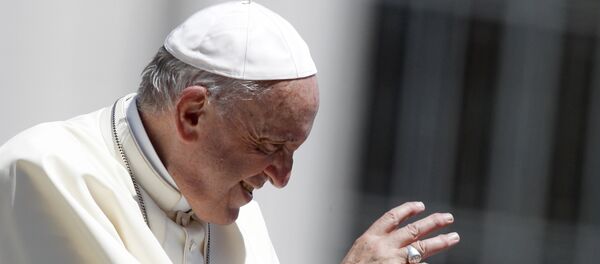Pope Francis denounced world leaders for the use and possession of nuclear weapons and adherence to the Cold War-era doctrine of mutual assured destruction, during his visit to Nagasaki on Sunday, Associated Press reported.
“Convinced as I am that a world without nuclear weapons is possible and necessary, I ask political leaders not to forget that these weapons cannot protect us from current threats to national and international security”, he said, after placing a wreath of flowers at a memorial to the victims of the 1945 US atomic bombing. Francis emphasised that the site reminded him “of the pain and horror that we human beings are capable of inflicting upon one another”.
“One of the deepest longings of the human heart is for security, peace, and stability”, the head of the Catholic Church continued. “The possession of nuclear and other weapons of mass destruction is not the answer to this desire; indeed they seem always to thwart it”.
Pope Francis has been an advocate of a ban on the use and possession of nuclear weapons, with his jurisdiction the Holy See being among the first countries to ratify the UN’s Nuclear Weapon Ban Treaty . The Pope’s current three-day trip to Japan is expected to emphasise this call. His next stop will be Hiroshima, the first city in the world to suffer the consequences of an atomic bomb. The dropped one on the city on 6 August 1945.
“Peace and international stability are incompatible with attempts to build upon the fear of mutual destruction or the threat of total annihilation”, Pope Francis added. “They can be achieved only on the basis of a global ethic of solidarity and cooperation”.
The United Stated dropped nuclear bombs on Japan’s Hiroshima and Nagasaki at the end of the Second World War in 1945, killing more than 200,000 people and causing devastating long-lasting consequences for the survivors, which to this day can still be observed in the country. In 2017, the UN passed the Treaty on the Prohibition of Nuclear Weapons that was ratified by 33 states, preventing the development, testing, and stockpiling of nuclear weapons, but was opposed by several states.




